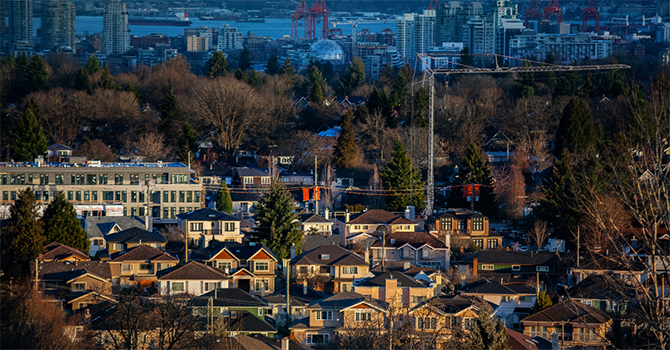
 Empty Homes Tax supports increase in housing availability
Empty Homes Tax supports increase in housing availability
Annual report released as Empty Homes Tax declarations open for 2022 tax year
The Empty Homes Tax (EHT) continues to help return vacant and under-used homes to the rental market for those who live and work in Vancouver, according to data released today in our 2021 Empty Homes Tax Annual Report PDF file (420 KB).
As the fifth year of EHT reporting drew to a close, the total number of vacant properties stood at 1,398, which is 36% fewer properties than when the program launched in 2017.
Of the 1,755 residential properties that were deemed, determined, or declared vacant under the EHT program in 2020, 49% were converted to occupied status in 2021.
CMHC rental market data showed an increase of over 5,900 condominium units in the long-term rental stock in Vancouver in 2019 following the introduction of EHT and other measures like the provincial government’s speculation and vacancy tax. The number of condominium rental units continued to rise in 2020 (+2,455) and 2021 (+615).
Since launching, $115.3 million in revenue generated by the EHT has been allocated to support affordable housing initiatives in Vancouver such as the Community Housing Incentive Program (CHIP). In 2022, three CHIP grants—totaling $16.3 million—were awarded to support the work of local non-profits who play an important role in operating and delivering affordable housing to low-income households.
Learn more about these initiatives, and take an in-depth look at the statistics behind the tax, in the report.
2022 declarations now open
Vancouver property owners can now start making their Empty Homes Tax (EHT) property status declarations for the 2022 tax year. Residential property owners are required to complete a declaration every year, even if they live in their property or rent it out.
Properties declared or deemed vacant in the 2022 tax year will be subject to a tax of 3% of the property's 2022 assessed taxable value. The rate for the 2023 tax year will increase to 5%. Most homes will not be subject to the tax, as it does not apply to principal residences or homes rented for at least 6 months of the year.
Over the coming weeks, declaration instructions are being mailed to property owners along with their advance property tax notice. Owners who have signed up to receive eBills will also receive their notice direct to their email inbox. Declarations are due by February 2, 2023.
How to declare
Declare in just a few minutes. If you require help, chat live with an advisor on our website, or phone us at 3-1-1.
Sign up for online services account
While online, property owners are encouraged to sign up for an online services account. Once signed up, owners can opt to receive their next tax notice by email, check their account balances, and access other important tax information.
Speculation and Vacancy Tax
Our Empty Homes Tax is separate from the provincial government’s Speculation and Vacancy Tax. Find more information about the province’s tax External website, opens in new tab
Late declarations for 2021
Owners who failed to declare their property status for the 2021 tax year have until July 5, 2023, to make a late declaration in the form of a Notice of Complaint. A $250 by-law fine applies to late declarations.